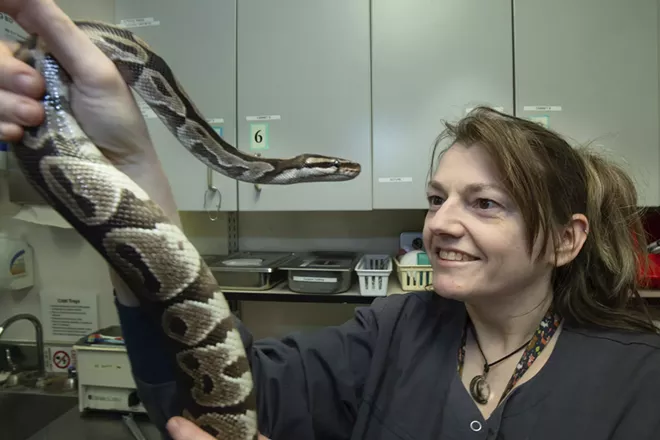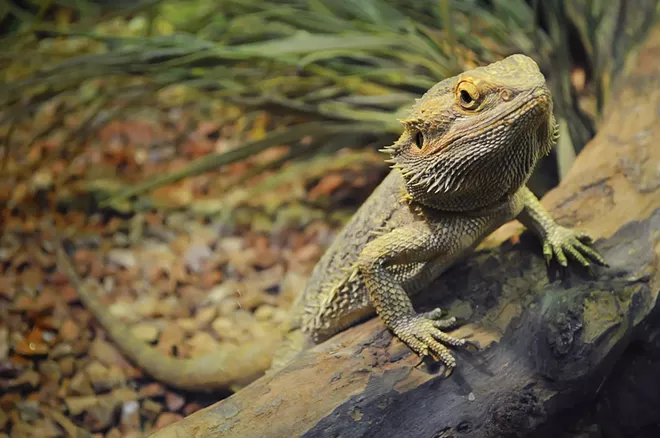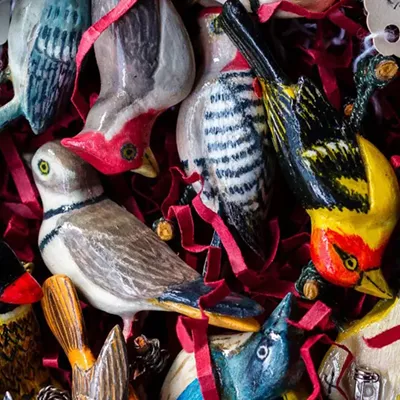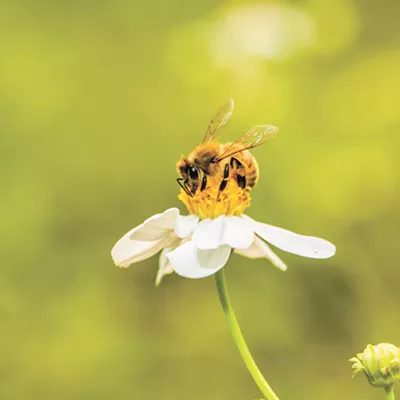The reasons people decide to rehome exotic pets are endless: solitary animals that may fight aggressively, sometimes to the death, when housed together; tortoises that will grow to be more than 250 pounds over the course of 30 years; loud birds that will outlive their owners.
In cases like these, rehomed animals may be the lucky ones. They may go to a new owner who provides the right diet and habitat for them to thrive. But others can live a life of improper care and could die early from it.
Whether animals are rehomed or not, most of them come from well-intentioned owners who are uninformed or misinformed. That's why it is crucial to do your research before adding an exotic pet to the family. Size, sociability, housing, appropriate food and cost of care should all be considered before the animal is brought home.
Of all the exotic pets to choose from, reptiles are the most misunderstood. People always seem to think that they are easy to care for, but appropriate husbandry for reptiles is very difficult to master. Nine times out of 10, issues with reptiles brought to the Washington State University Veterinary Teaching Hospital can be directly linked back to the husbandry of an animal.
Depending on the reptile, it's going to need a maintained temperature of anywhere between 75 and 125 degrees Fahrenheit; some may need a very arid environment while others need a humidity level of 70 percent. The food requirements could be different as well as the vitamin and mineral supplements needed.
Bearded dragons and some other lizards like iguanas require UV-B lighting to be able to activate vitamin D in the skin. Without active vitamin D, the animal will not be able to absorb calcium and will end up with metabolic bone disease, where they become weak, unable to walk, may be physically deformed, and may have seizures or even die. Many that don't die require humane euthanasia because there is simply no avenue that will result in a pain-free life.
Just like reptiles, the lifespan of certain birds should also be considered. People tend not to think about what is going to happen when they are 30 and get a macaw that will live to be 50 or 60 years old, or even a parrot that will live to be 20 or 25. As an exotic vet, I get multiple calls annually asking if I can take on birds, snakes and anything in between.
Children in the home should always be considered when getting any exotic pet, especially birds and small mammals that are easier to inadvertently injure. Is the child responsible enough to have a pet? Depending on the pet, its size and its nurture, you may find that the children are the ones needing medical attention.

These are a few examples of common issues we see with unthought ownership of exotic pets, but every species from sugar gliders to rabbits has its very own health requirements that owners must consider beforehand. That's one reason you should never buy an animal as a gift for someone who doesn't know it is coming.
Exotic pets are cute and it's easy to buy one and bring it home. What's tougher, and forgotten in the moment, is providing that animal with a lifetime of love and care. Think critically and make all the appropriate considerations before contemplating a new exotic addition to the family.
Dr. Nickol Finch earned her Doctor of Veterinary Medicine degree in 1997 from the Washington State University College of Veterinary Medicine. She's been training aspiring veterinarians and caring for exotic animals at WSU's Veterinary Teaching Hospital for 22 years.




















